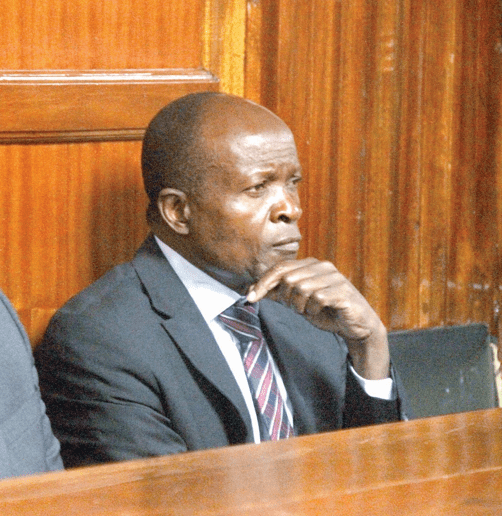Obado case hearing fails to take off over document markings

The hearing of the corruption case against former Migori Governor Zachary Obado, his four children Dan Achola, Scarlet Susan, Everlyn Zachary and Jerry Zachary, together with 11 other accused persons failed to proceed yesterday.
Milimani Anti-Corruption Courts Chief Magistrate Victor Wakumile adjourned the case to enable the prosecution to sort out some markings in the bundle of documents before they could be used in the case.
The case was set for hearing but it could not proceed since some markings on the documents were not clearly seen. The magistrate ordered the case to proceed this morning (Tuesday) without further delay.
Illegal scheme
EACC Investigating Officer, who was to testify on how an alleged illegal scheme by the former Governor and his co-accused persons, was hatched and executed was stood down.
All the accused persons face charges ranging from conspiracy to commit economic crimes, conflict of interest, unlawful acquisition of public property and money laundering.
The court has since heard that Obado and his co-accused exaggerated the prices of goods and services to unfairly confer financial benefits to themselves.
59 witnesses have been lined up to testify before the court in a bid to prove the case against the former governor and co-accused persons.
EACC undertook investigations in the case after receiving allegations that Migori County Government had made suspicious payments to multiple companies, totalling Sh1.98 billion.
However, after investigations, most payments were found to have been lawfully made with respect to executed contracts whose works were confirmed in a verification exercise.
However, payments amounting to Sh235 million remained unexplained and thus deemed to have been acquired inappropriately from the County Government.
The unexplained amount, which the Commission found to be proceeds of corruption, includes alleged kickbacks directly sent by some companies to foreign universities as school fees for Obado’s children.
High-end properties purchased for the family by the said contractors have since been recovered through Alternative Dispute Resolution (ADR), following a civil recovery suit filed at the High Court.












